Here are my favorite poems by John Keats categorized:
- Famous short poems by John Keats
- Short poems on love by John Keats
- Poems on nature by John Keats
- Romantic poems by John Keats
So if you want the best poems by John Keats, then you’re in the right place.
Let’s get started!
- 55 Best Poems by William Shakespeare
- 27 Best Poems by Arthur Rimbaud
- 47 Best Poems by Edgar Allan Poe
- 43 Best Poems by Rumi
- 35 Bewitching Love Poems by Rumi
- 47 Admirable Love Poems by William Butler Yeats
- 21 Sensuous Love Poems by John Keats
- 21 Absorbing Love Poems by Pablo Neruda
- 49 Consuming Love Poems by Shakespeare
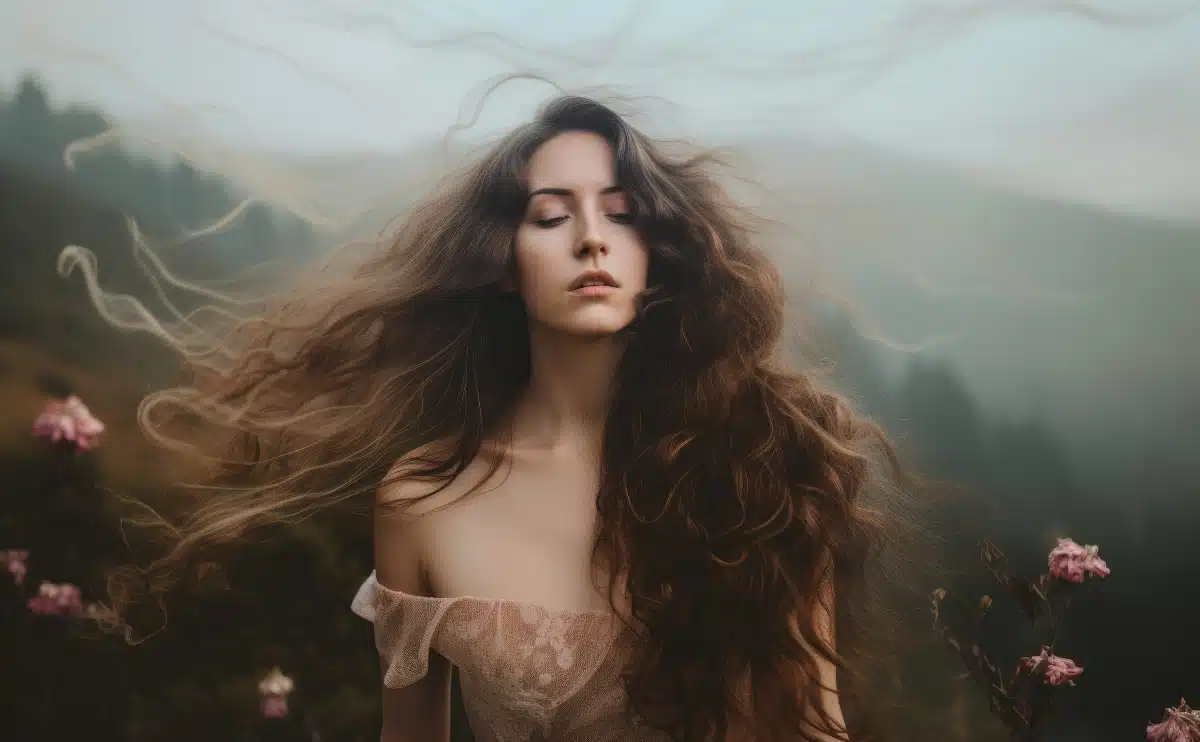
Best Poems by John Keats
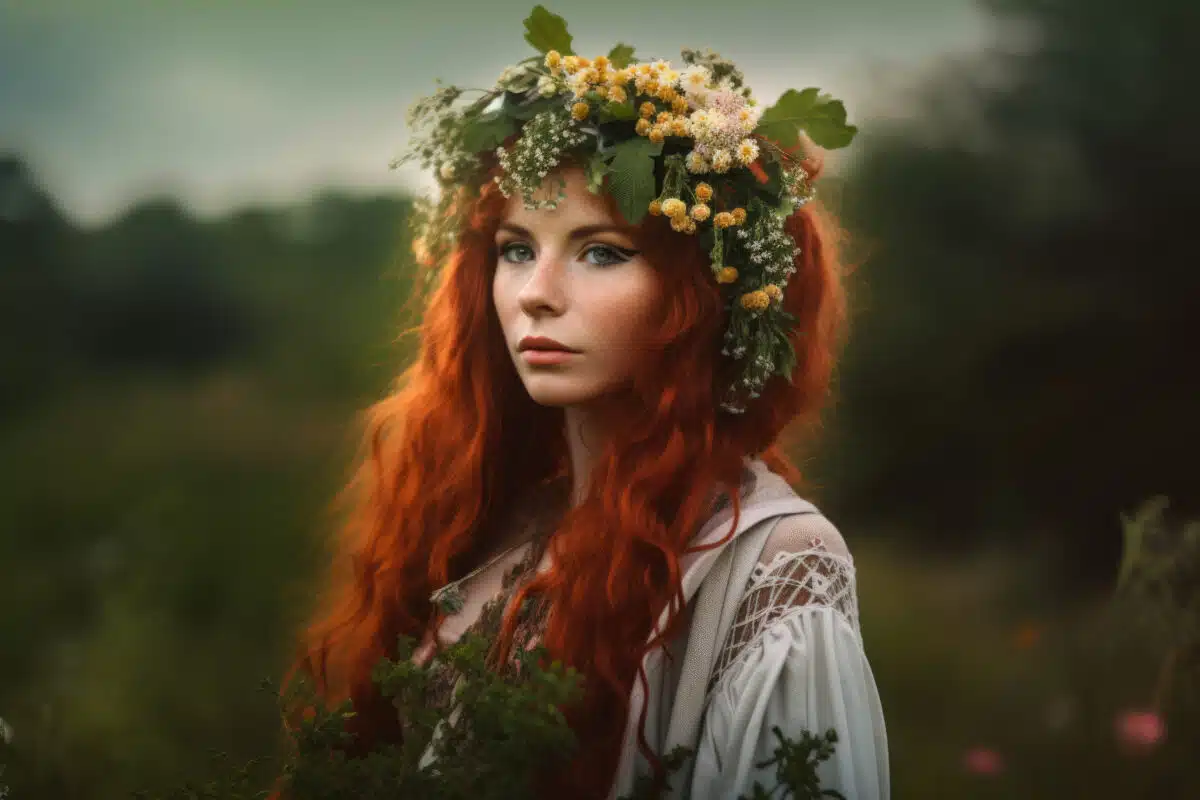
Discover the timeless beauty of John Keats’ poetry as we embark on a journey through his captivating verses.
In this collection, we have carefully categorized his works to bring you a delightful selection of his finest creations.
From the enchanting realm of nature to the depths of human emotions, Keats’ words have the power to transport us to another world.
As you explore these beloved poems, you will find yourself immersed in vivid imagery, lyrical melodies, and profound insights into the human experience.
Join us as we delve into the sheer brilliance of John Keats’ poetic genius, a true testament to the enduring power of literature.
Let’s jump right in!
My #1 Favorite Poem by John Keats
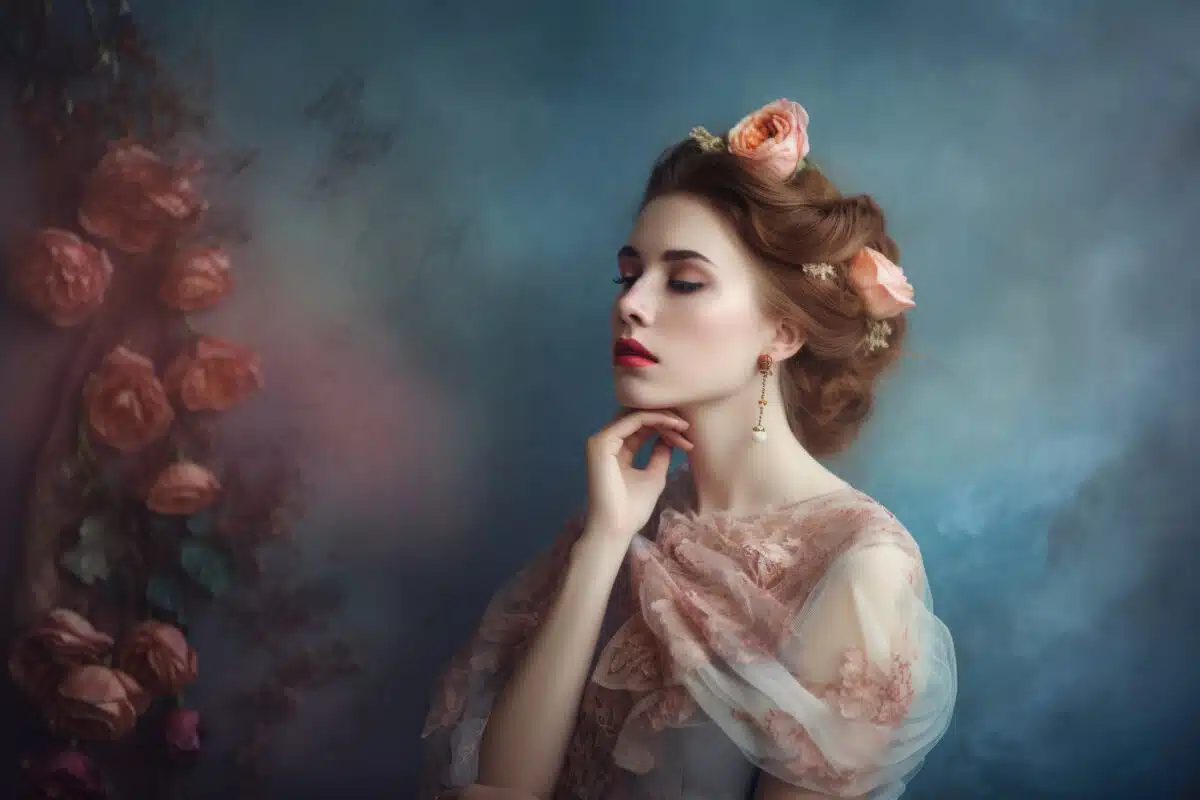
“Welcome Joy, And Welcome Sorrow” by John Keats
“Under the flag
Of each his faction, they to battle bring
Their embryo atoms.”
— Milton.
Welcome joy, and welcome sorrow,
Lethe’s weed and Hermes’ feather;
Come to-day, and come to-morrow,
I do love you both together!
I love to mark sad faces in fair weather;
And hear a merry laugh amid the thunder;
Fair and foul I love together.
Meadows sweet where flames are under,
And a giggle at a wonder;
Visage sage at pantomine;
Funeral, and steeple-chime;
Infant playing with a skull;
Morning fair, and shipwreck’d hull;
Nightshade with the woodbine kissing;
Serpents in red roses hissing;
Cleopatra regal-dress’d
With the aspic at her breast;
Dancing music, music sad,
Both together, sane and mad;
Muses bright and muses pale;
Sombre Saturn, Momus hale;
Laugh and sigh, and laugh again;
Oh the sweetness of the pain!
Muses bright, and muses pale,
Bare your faces of the veil;
Let me see; and let me write
Of the day, and of the night
Both together: let me slake
All my thirst for sweet heart-ache!
Let my bower be of yew,
Interwreath’d with myrtles new;
Pines and lime-trees full in bloom,
And my couch a low grass-tomb.
Why “Welcome Joy, And Welcome Sorrow” Is My Favorite Poem
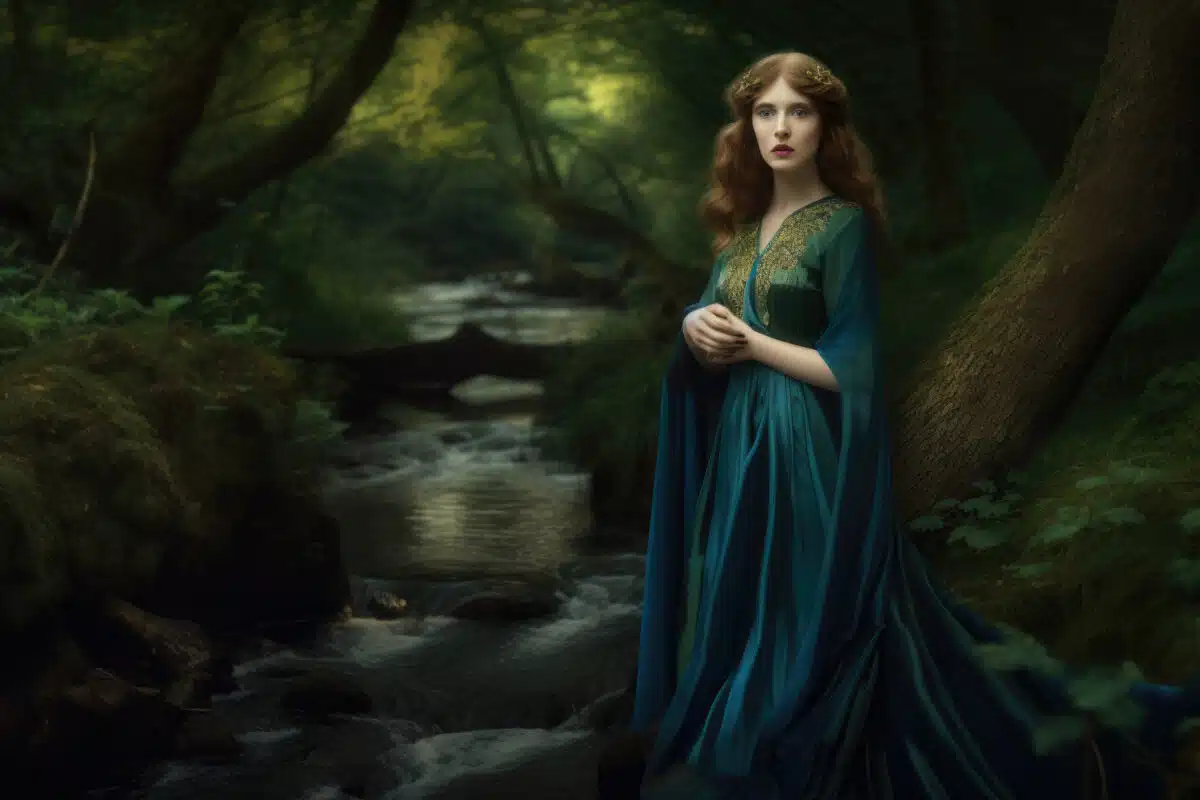
I absolutely love the light and positive message conveyed in the poem “Welcome Joy, And Welcome Sorrow” by John Keats.
This simple yet profound poem from one of the world’s most renowned romantic poets is exactly what our chaotic world needs today.
Keats beautifully captures the profound message of life’s duality in such a relatable way that people from all walks of life can appreciate.
We all require a balanced life and a deep understanding of the reality of both the joys and sorrows of human existence.
Through his enchanting words, Keats reminds us to not take things too seriously, to embrace the unfolding of life, and to appreciate its beauty by living in the present moment.
Famous Short Poems by John Keats

John Keats, a renowned poet of the Romantic era, gifted the world with an exquisite collection of short poems that continue to captivate readers today.
Through his evocative language and vivid imagery, Keats masterfully weaves enchanting tales of love, nature, and the human experience, leaving us spellbound in the beauty of his verses.
Let’s get straight to it!
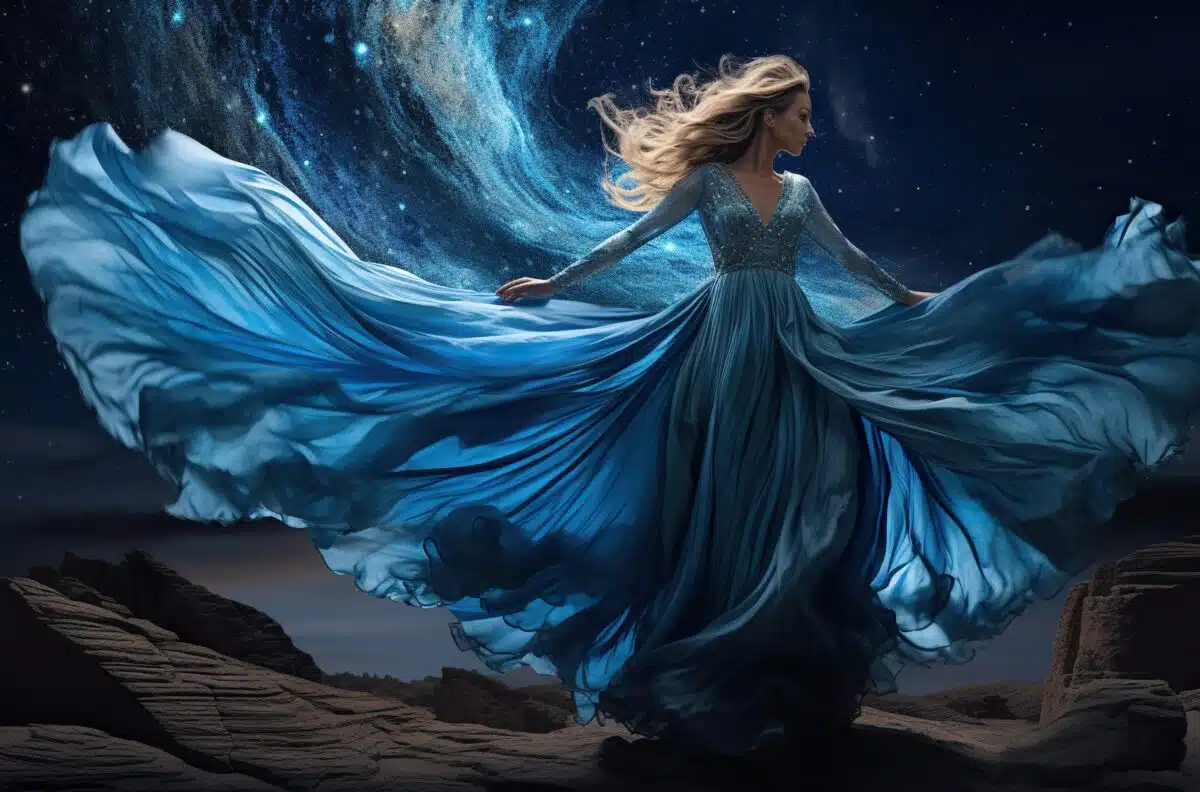
“Bright Star” by John Keats
Bright star, would I were stedfast as thou art
Not in lone splendour hung aloft the night
And watching, with eternal lids apart,
Like nature’s patient, sleepless Eremite,
The moving waters at their priest-like task
Of pure ablution round earth’s human shores,
Or gazing on the new soft-fallen mask
Of snow upon the mountains and the moors
No, yet still stedfast, still unchangeable,
Pillow’d upon my fair love’s ripening breast,
To feel for ever its soft fall and swell,
Awake for ever in a sweet unrest,
Still, still to hear her tender-taken breath,
And so live ever, or else swoon to death.
“On The Sea” by John Keats
It keeps eternal whisperings around
Desolate shores, and with its mighty swell
Gluts twice ten thousand caverns, till the spell
Of Hecate leaves them their old shadowy sound.
Often ’tis in such gentle temper found
That scarcely will the very smallest shell
Be mov’d for days from whence it sometime fell,
When last the winds of heaven were unbound.
Oh ye! who have your eye-balls vex’d and tir’d,
Feast them upon the wideness of the Sea;
Oh ye! whose ears are dinn’d with uproar rude,
Or fed too much with cloying melody,
Sit ye near some old cavern’s mouth, and brood
Until ye start, as if the sea-nymphs quir’d!
“To Solitude” by John Keats
O Solitude! if I must with thee dwell,
Let it not be among the jumbled heap
Of murky buildings: climb with me the steep,
Nature’s observatory, whence the dell,
In flowery slopes, its river’s crystal swell,
May seem a span; let me thy vigils keep
‘Mongst boughs pavilioned, where the deer’s swift leap
Startles the wild bee from the foxglove bell.
But though I’ll gladly trace these scenes with thee,
Yet the sweet converse of an innocent mind,
Whose words are images of thoughts refined,
Is my soul’s pleasure; and it sure must be
Almost the highest bliss of human-kind,
When to thy haunts two kindred spirits flee.

“On A Dream” by John Keats
As Hermes once took to his feathers light
When lulled Argus, baffled, swoon’d and slept,
So on a Delphic reed my idle spright
So play’d, so charm’d, so conquer’d, so bereft
The dragon-world of all its hundred eyes,
And, seeing it asleep, so fled away:
Not to pure Ida with its snow-cold skies,
Nor unto Tempe where Jove griev’d a day;
But to that second circle of sad hell,
Where ‘mid the gust, the whirlwind, and the flaw
Of rain and hail-stones, lovers need not tell
Their sorrows. Pale were the sweet lips I saw,
Pale were the lips I kiss’d, and fair the form
I floated with, about that melancholy storm.
“To A Lady Seen For A Few Moments At Vauxhall” by John Keats
Time’s sea hath been five years at its slow ebb,
Long hours have to and fro let creep the sand,
Since I was tangled in thy beauty’s web,
And snared by the ungloving of thine hand.
And yet I never look on midnight sky,
But I behold thine eyes’ well memory’d light;
I cannot look upon the rose’s dye,
But to thy cheek my soul doth take its flight.
I cannot look on any budding flower,
But my fond ear, in fancy at thy lips
And hearkening for a love-sound, doth devour
Its sweets in the wrong sense: Thou dost eclipse
Every delight with sweet remembering,
And grief unto my darling joys dost bring.
“To Sleep” by John Keats
O soft embalmer of the still midnight!
Shutting, with careful fingers and benign,
Our gloom-pleas’d eyes, embower’d from the light,
Enshaded in forgetfulness divine;
O soothest Sleep! if so it please thee, close,
In midst of this thine hymn, my willing eyes.
Or wait the Amen, ere thy poppy throws
Around my bed its lulling charities;
Then save me, or the passed day will shine
Upon my pillow, breeding many woes;
Save me from curious conscience, that still hoards
Its strength for darkness, burrowing like a mole;
Turn the key deftly in the oiled wards,
And seal the hushed casket of my soul.
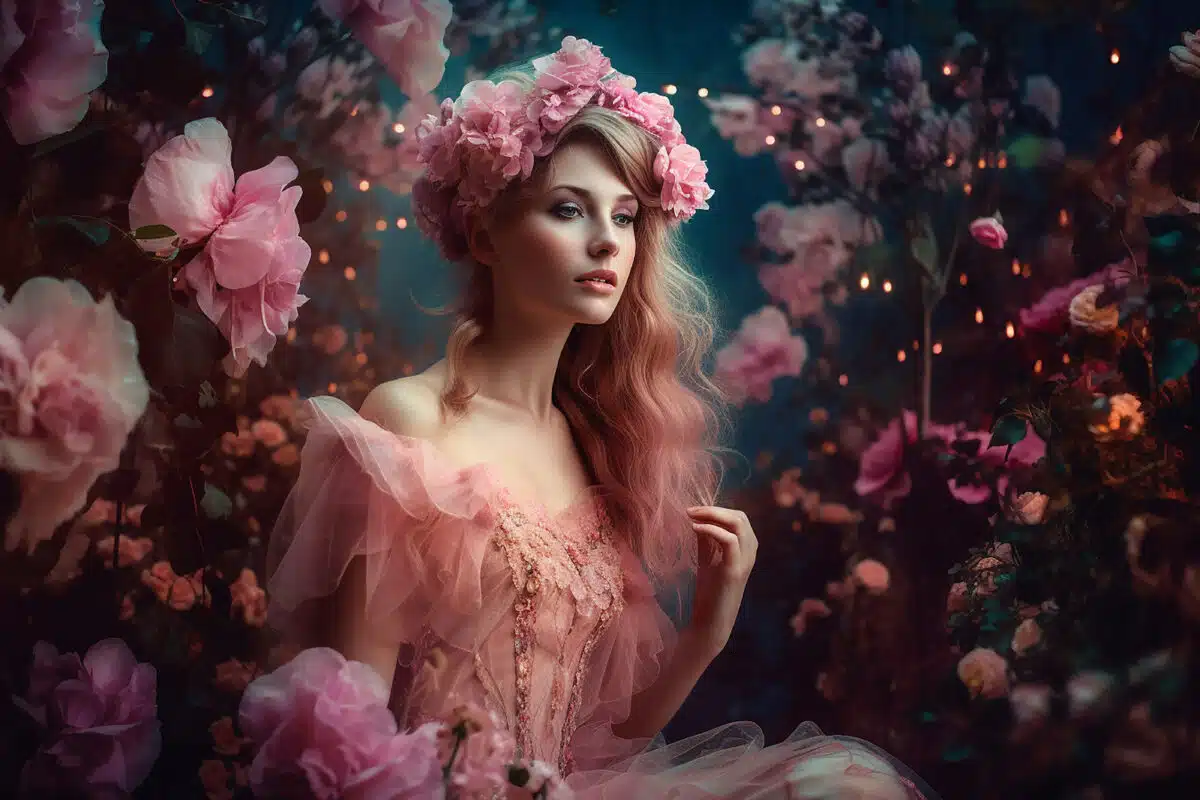
“The Day Is Gone” by John Keats
The day is gone, and all its sweets are gone!
Sweet voice, sweet lips, soft hand, and softer breast,
Warm breath, light whisper, tender semitone,
Bright eyes, accomplished shape, and lang’rous waist!
Faded the flower and all its budded charms,
Faded the sight of beauty from my eyes,
Faded the shape of beauty from my arms,
Faded the voice, warmth, whiteness, paradise,
Vanished unseasonably at shut of eve,
When the dusk holiday, or holinight
Of fragrant-curtained love begins to weave
The woof of darkness thick, for hid delight;
But, as I’ve read love’s missal through today,
He’ll let me sleep, seeing I fast and pray.
“To Byron” by John Keats
Byron! how sweetly sad thy melody!
Attuning still the soul to tenderness,
As if soft Pity, with unusual stress,
Had touch’d her plaintive lute, and thou, being by,
Hadst caught the tones, nor suffer’d them to die.
O’ershadowing sorrow doth not make thee less
Delightful: thou thy griefs dost dress
With a bright halo, shining beamily,
As when a cloud the golden moon doth veil,
Its sides are ting’d with a resplendent glow,
Through the dark robe oft amber rays prevail,
And like fair veins in sable marble flow;
Still warble, dying swan! still tell the tale,
The enchanting tale, the tale of pleasing woe.
“On First Looking Into Chapman’s Homer” by John Keats
Much have I travell’d in the realms of gold,
And many goodly states and kingdoms seen;
Round many western islands have I been
Which bards in fealty to Apollo hold.
Oft of one wide expanse had I been told
That deep-brow’d Homer ruled as his demesne;
Yet did I never breathe its pure serene
Till I heard Chapman speak out loud and bold:
Then felt I like some watcher of the skies
When a new planet swims into his ken;
Or like stout Cortez when with eagle eyes
He star’d at the Pacific, and all his men
Look’d at each other with a wild surmise,
Silent, upon a peak in Darien.
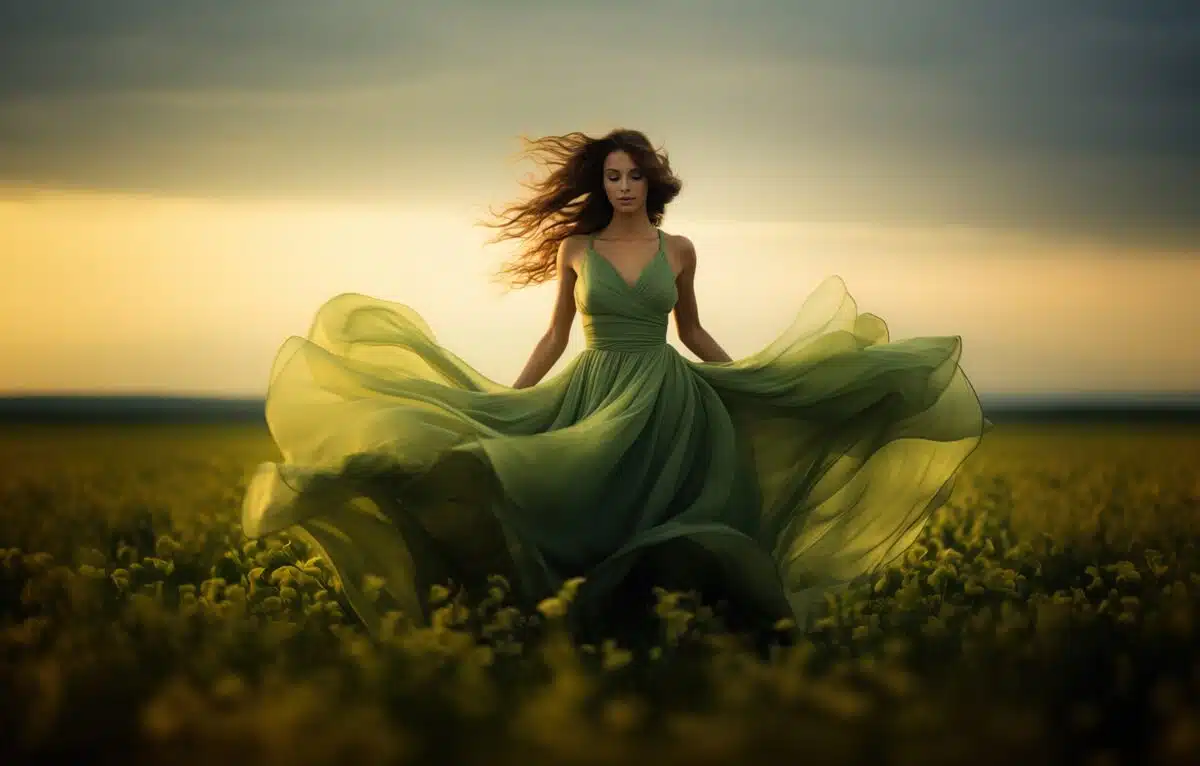
“After Dark Vapours” by John Keats
After dark vapours have oppress’d our plains
For a long dreary season, comes a day
Born of the gentle South, and clears away
From the sick heavens all unseemly stains.
The anxious month, relieved from its pains,
Takes as a long-lost right the feel of May,
The eye-lids with the passing coolness play,
Like rose-leaves with the drip of summer rains.
And calmest thoughts come round us—as of leaves
Budding fruit ripening in stillness-autumn suns
Smiling at eve upon the quiet sheaves, —
Sweet Sappho’s cheek, —a sleeping infant’s breath, —
The gradual sand that through an hour-glass runs, —
A woodland rivulet, —a Poet’s death.
“Happy Is England” by John Keats
Happy is England! I could be content
To see no other verdure than its own;
To feel no other breezes than are blown
Through its tall woods with high romances blent;
Yet do I sometimes feel a languishment
For skies Italian, and an inward groan
To sit upon an Alp as on a throne,
And half forget what world or worldling meant.
Happy is England, sweet her artless daughters:
Enough their simple loveliness for me,
Enough their whitest arms in silence clinging:
Yet do I often warmly burn to see
Beauties of deeper glance, and hear their singing,
And float with them about the summer waters.
“On Seeing the Elgin Marbles For The First Time” by John Keats
My spirit is too weak; mortality
Weighs heavily on me like unwilling sleep,
And each imagined pinnacle and steep
Of godlike hardship tells me I must die
Like a sick eagle looking at the sky.
Yet ’tis a gentle luxury to weep,
That I have not the cloudy winds to keep
Fresh for the opening of the morning’s eye.
Such dim-conceived glories of the brain
Bring round the heart an indescribable feud ;
So do these wonders a most dizzy pain,
That mingles Grecian grandeur with the rude
Wasting of old Time-with a billowy main,
A sun, a shadow of a magnitude.
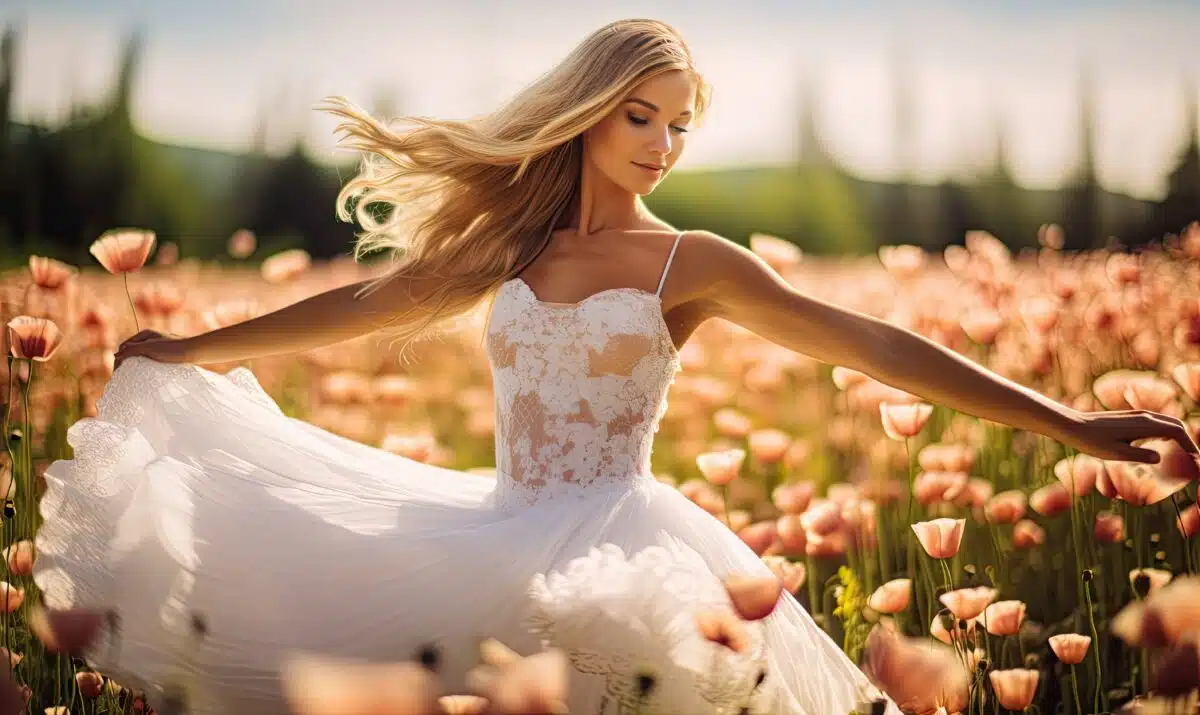
“On A Picture of Leander” by John Keats
Come hither, all sweet maidens soberly,
Down-looking aye, and with a chasten’d light
Hid in the fringes of your eyelids white,
And meekly let your fair hands joined be,
As if so gentle that ye could not see,
Untouch’d, a victim of your beauty bright,
Sinking away to his young spirit’s night,
Sinking bewilder’d ‘mid the dreary sea:
‘Tis young Leander toiling to his death;
Nigh swooning, he doth purse his weary lips
For Hero’s cheek, and smiles against her smile.
O horrid dream! see how his body dips,
Dead-heavy; arms and shoulders gleam a while:
He’s gone; up bubbles all his amorous breath!
“When I Have Fears” by John Keats
When I have fears that I may cease to be
Before my pen has glean’d my teeming brain,
Before high-piled books, in charact’ry,
Hold like full garners the full- ripen’d grain;
When I behold, upon the night’s starr’d face,
Huge cloudy symbols of a high romance,
And feel that I may never live to trace
Their shadows, with the magic hand of chance;
And when I feel, fair creature of an hour!
That I shall never look upon thee more,
Never have relish in the faery power
Of unreflecting love!–then on the shore
Of the wide world I stand alone, and think,
Till Love and Fame to nothingness do sink.
“To Ailsa Rock” by John Keats
Hearken, thou craggy ocean pyramid!
Give answer by thy voice, the sea-fowls’ screams!
When were thy shoulders mantled in huge streams?
When, from the sun, was thy broad forehead hid?
How long is’t since the mighty Power bid
Thee heave to airy sleep from fathom dreams?
Sleep in the lap of thunder or sunbeams,
Or when grey clouds are thy cold coverlid.
Thou answer’st not; for thou art dead asleep;
Thy life is but two dead eternities,
The last in air, the former in the deep;
First with the whales, last with the eagle-skies,
Drowned wast thou till an earthquake made thee steep,
Another cannot wake thy giant-size!
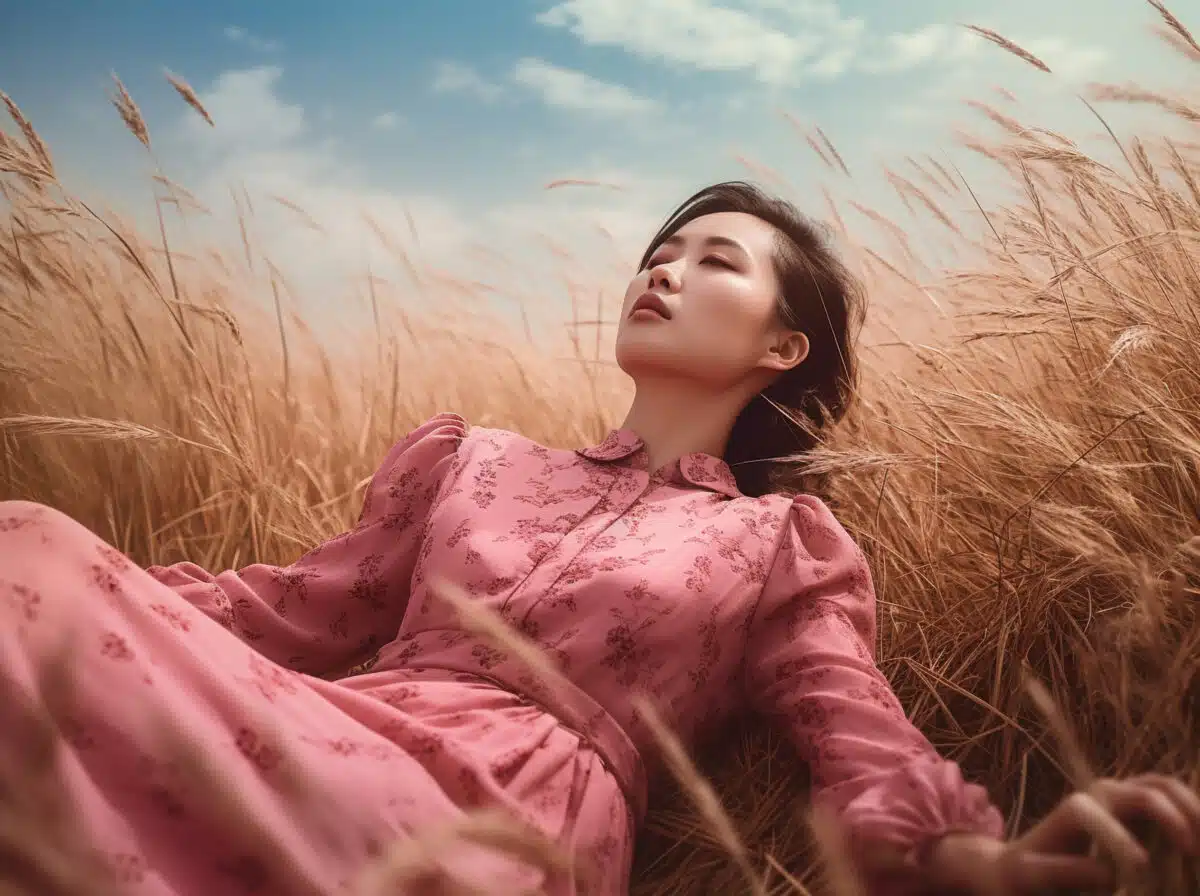
“Written In Burns’ Cottage” by John Keats
This mortal body of a thousand days
Now fills, O Burns, a space in thine own room,
Where thou didst dream alone on budded bays,
Happy and thoughtless of thy day of doom!
My pulse is warm with thine own Barley-bree,
My head is light with pledging a great soul,
My eyes are wandering, and I cannot see,
Fancy is dead and drunken at its goal;
Yet can I stamp my foot upon thy floor,
Yet can I ope thy window-sash to find
The meadow thou hast tramped o’er and o’er, –
Yet can I think of thee till thought is blind, –
Yet can I gulp a bumper to thy name,-
O smile among the shades, for this is fame!
“Why Did I Laugh To-Night?” by John Keats
Why did I laugh to-night? No voice will tell:
No God, no Demon of severe response,
Deigns to reply from Heaven or from Hell.
Then to my human heart I turn at once.
Heart ! Thou and I are here, sad and alone;
I say, why did I laugh? O mortal pain!
O Darkness! Darkness! ever must I moan,
To question Heaven and Hell and Heart in vain.
Why did I laugh? I know this Being’s lease,
My fancy to its utmost blisses spreads;
Yet would I on this very midnight cease,
And the world’s gaudy ensigns see in shreds;
Verse, Fame, and Beauty are intense indeed,
But Death intenser-Death is Life’s high meed.
“What The Thrush Said” by John Keats
O Thou whose face hath felt the Winter’s wind,
Whose eye has seen the snow-clouds hung in mist,
And the black elm tops ’mong the freezing stars,
To thee the spring will be a harvest-time.
O thou, whose only book has been the light
Of supreme darkness which thou feddest on
Night after night when Phœbus was away,
To thee the Spring shall be a triple morn.
O fret not after knowledge—I have none,
And yet my song comes native with the warmth.
O fret not after knowledge—I have none,
And yet the Evening listens. He who saddens
At thought of idleness cannot be idle,
And he’s awake who thinks himself asleep.
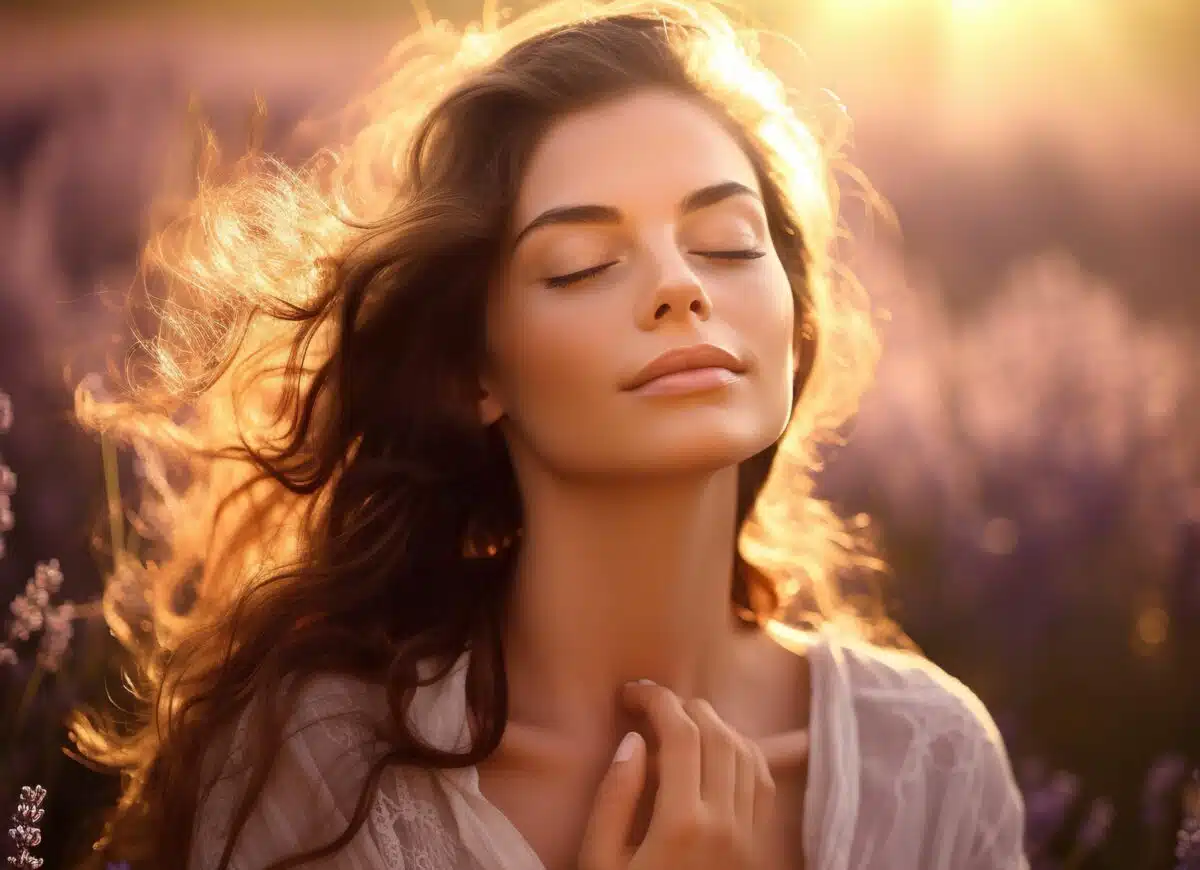
“This Living Hand” by John Keats
This living hand, now warm and capable
Of earnest grasping, would, if it were cold
And in the icy silence of the tomb,
So haunt thy days and chill thy dreaming nights
That thou wouldst wish thine own heart dry of blood
So in my veins red life might stream again,
And thou be conscience-calmed, see here it is
I hold it towards you.
“To One Who Has Been Long In City Pent” by John Keats
To one who has been long in city pent,
‘Tis very sweet to look into the fair
And open face of heaven to breathe a prayer
Full in the smile of the blue firmament.
Who is more happy, when, with heart’s content,
Fatigued he sinks into some pleasant lair
Of wavy grass, and reads a debonair
And gentle tale of love and languishment?
Returning home at evening, with an ear
Catching the notes of Philomel, an eye
Watching the sailing cloudlet’s bright career,
He mourns that day so soon has glided by:
E’en like the passage of an angel’s tear
That falls through the clear ether silently.
“If By Dull Rhymes Our English Must Be Chain’d” by John Keats
If by dull rhymes our English must be chain’d,
And, like Andromeda, the Sonnet sweet
Fetter’d, in spite of pained loveliness;
Let us find out, if we must be constrain’d,
Sandals more interwoven and complete
To fit the naked foot of poesy;
Let us inspect the lyre, and weigh the stress
Of every chord, and see what may be gain’d
By ear industrious, and attention meet:
Misers of sound and syllable, no less
Than Midas of his coinage, let us be
Jealous of dead leaves in the bay wreath crown;
So, if we may not let the Muse be free,
She will be bound with garlands of her own.

“Fragment Of An Ode To Maia” by John Keats
Mother of Hermes! and still youthful Maia!
May I sing to thee
As thou wast hymned on the shores of Baiae?
Or may I woo thee
In earlier Sicilian? or thy smiles
Seek as they once were sought, in Grecian isles,
By bards who died content on pleasant sward,
Leaving great verse unto a little clan?
O give me their old vigour! and unheard
Save of the quiet primrose, and the span
Of heaven, and few ears,
Rounded by thee, my song should die away
Content as theirs,
Rich in the simple worship of a day.
“Give Me Women, Wine, And Snuff” by John Keats
Give me women, wine, and snuff
Until I cry out “hold, enough!”
You may do so sans objection
Till the day of resurrection;
For bless my beard they aye shall be
My beloved Trinity.
“Fragment: Where’s The Poet?” by John Keats
Where’s the Poet? show him! show him,
Muses nine! that I may know him.
‘Tis the man who with a man
Is an equal, be he King,
Or poorest of the beggar-clan
Or any other wonderous thing
A man may be ‘twixt ape and Plato;
‘Tis the man who with a bird,
Wren or Eagle, finds his way to
All its instincts; he hath heard
The Lion’s roaring, and can tell
What his horny throat expresseth,
And to him the Tiger’s yell
Come articulate and presseth
Or his ear like mother-tongue.
Short Poems on Love by John Keats
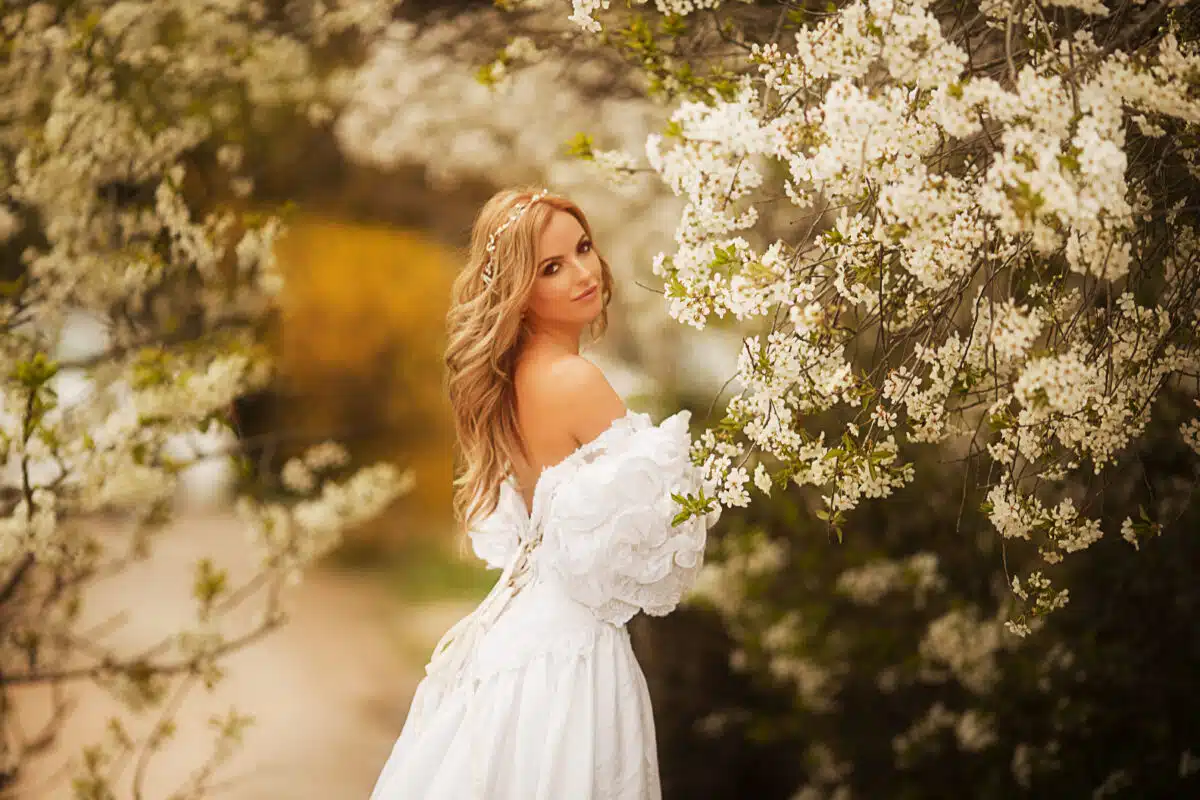
Love finds its ethereal expression in this timeless collection of Keats’ short verses.
With a delicate touch, Keats weaves words into evocative tapestries, painting profound emotions of passion, longing, and desire, inviting us on a poetic journey through the boundless realms of love.
Let’s jump right in!
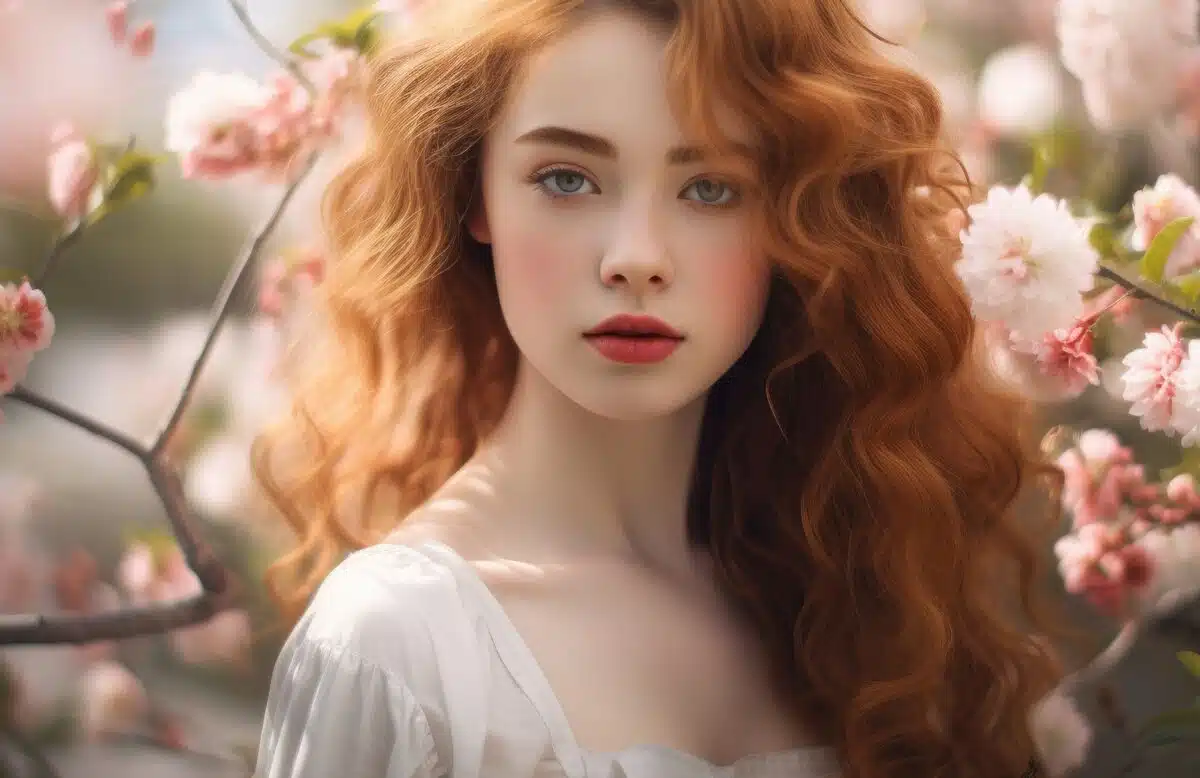
“To Fanny” by John Keats
I cry your mercy, pity, love! aye, love!
Merciful love that tantalizes not,
One-thoughted, never-wandering, guileless love,
Unmasked, and being seen, without a blot!
O! let me have thee whole, all, all, be mine!
That shape, that fairness, that sweet minor zest
Of love, your kiss, those hands, those eyes divine,
That warm, white, lucent, million-pleasured breast,
Yourself, your soul, in pity give me all,
Withhold no atom’s atom or I die,
Or living on, perhaps, your wretched thrall,
Forget, in the mist of idle misery,
Life’s purposes, the palate of my mind
Losing its gust, and my ambition blind!
“Asleep! O Sleep A Little While, White Pearl!” by John Keats
Asleep! O sleep a little while, white pearl!
And let me kneel, and let me pray to thee,
And let me call Heaven’s blessing on thine eyes,
And let me breathe into the happy air,
That doth enfold and touch thee all about,
Vows of my slavery, my giving up,
My sudden adoration, my great love!
“On Leigh Hunt’s Poem ‘The Story of Rimini.'” by John Keats
Who loves to peer up at the morning sun,
With half-shut eyes and comfortable cheek,
Let him with this sweet tale full often seek
For meadows where the little rivers run;
Who loves to linger with that brightest one
Of Heaven, Hesperus, let him lowly speak
These numbers to the night and starlight meek,
Or moon, if that her hunting be begun.
He who knows these delights, and, too, is prone
To moralize upon a smile or tear,
Will find at once a region of his own,
A bower for his spirit, and will steer
To alleys where the fir-tree drops its cone,
Where robins hop, and fallen leaves are sear.
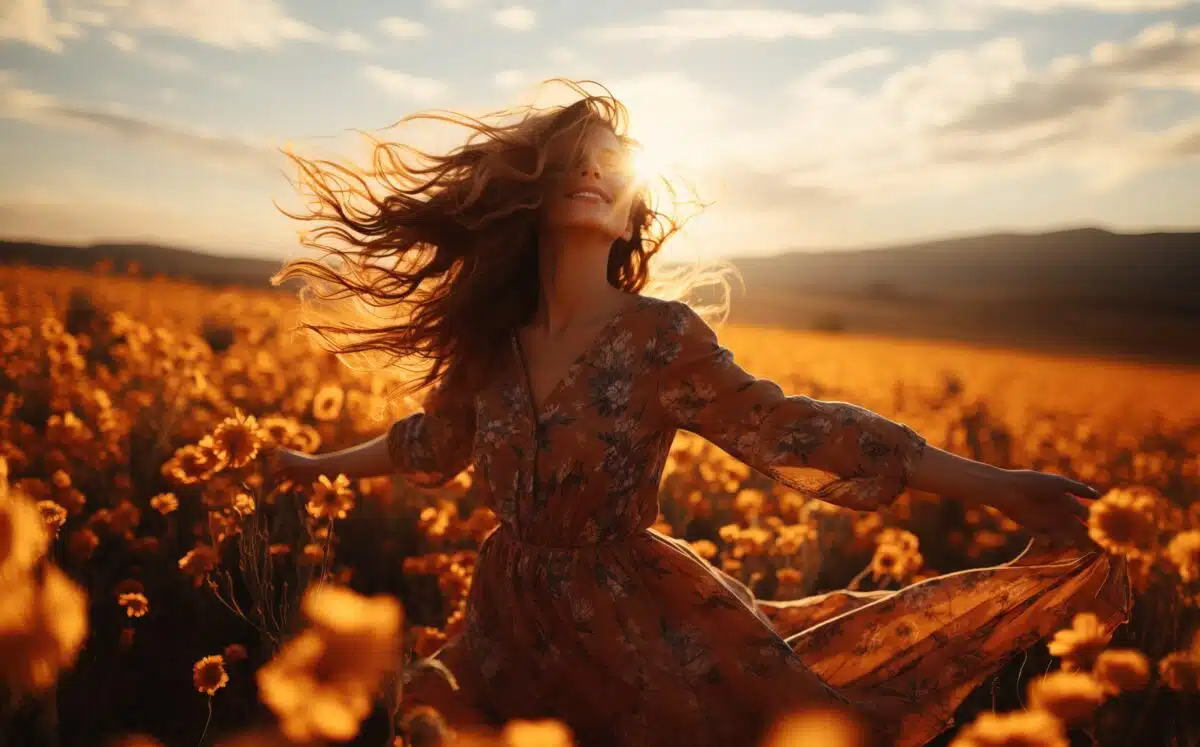
“Modern Love” by John Keats
And what is love? It is a doll, dress’d up,
For idleness to cosset, nurse and dandle;
A thing of soft misnomers, so divine
That silly youth doth think to make itself
Divine by loving, and so goes on
Yawning and doting a whole summer long,
Till Miss’s comb is made a pearl tiara,
And common Wellingtons turn Romeo boots;
Then Cleopatra lives at number seven,
And Antony resides in Brunswick Square.
Fools! if some passions high have warm’d the world,
If Queens and Soldiers have play’d deep for hearts,
It is no reason why such agonies
Should be more common than the growth of weeds.
Fools! make me whole again that weighty pearl
The Queen of Egypt melted, and I’ll say
That ye may love in spite of beaver hats.
“The Dove” by John Keats
I had a dove, and the sweet dove died;
And I have thought it died of grieving;
O, what could it grieve for ? its feet were tied
With a single thread of my own hand’s weaving;
Sweet little red feet, why should you die?
Why should you leave me, sweet bird, why?
You lived alone in the forest tree,
Why, pretty thing ! would you not live with me?
I kissed you oft and gave you white peas;
Why not live sweetly, as in the green trees?
“To A Young Lady Who Sent Me A Laurel Crown” by John Keats
Fresh morning gusts have blown away all fear
From my glad bosom, -now from gloominess
I mount for ever-not an atom less
Than the proud laurel shall content my bier.
No! by the eternal stars! or why sit here
In the Sun’s eye, and ‘ gainst my temples press
Apollo’s very leaves, woven to bless
By thy white fingers and thy spirit clear.
Lo! who dares say, “Do this”? Who dares call down
My will from its high purpose? Who say, “Stand,”
Or “Go”? This mighty moment I would frown
On abject Cæsars-not the stoutest band
Of mailed heroes should tear off my crown:
Yet would I kneel and kiss thy gentle hand!
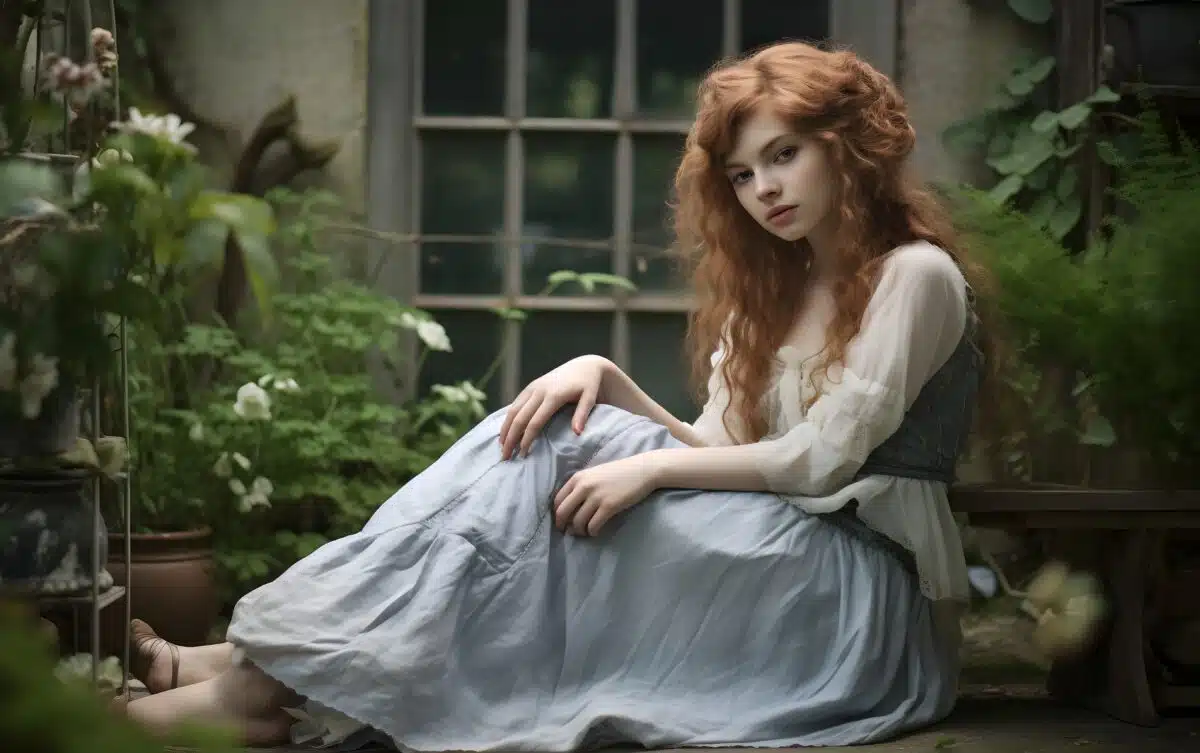
“To My Brother George” by John Keats
Many the wonders I this day have seen:
The sun, when first he kissed away the tears
That filled the eyes of Morn; the laurelled peers
Who from the feathery gold of evening lean;
The ocean with its vastness, its blue green,
Its ships, its rocks, its caves, its hopes, its fears,
Its voice mysterious, which whoso hears
Must think on what will be, and what has been.
E’en now, dear George, while this for you I write,
Cynthia is from her silken curtains peeping
So scantly, that it seems her bridal night,
And she her half-discovered revels keeping.
But what, without the social thought of thee,
Would be the wonders of the sky and sea?
Poems on Nature by John Keats
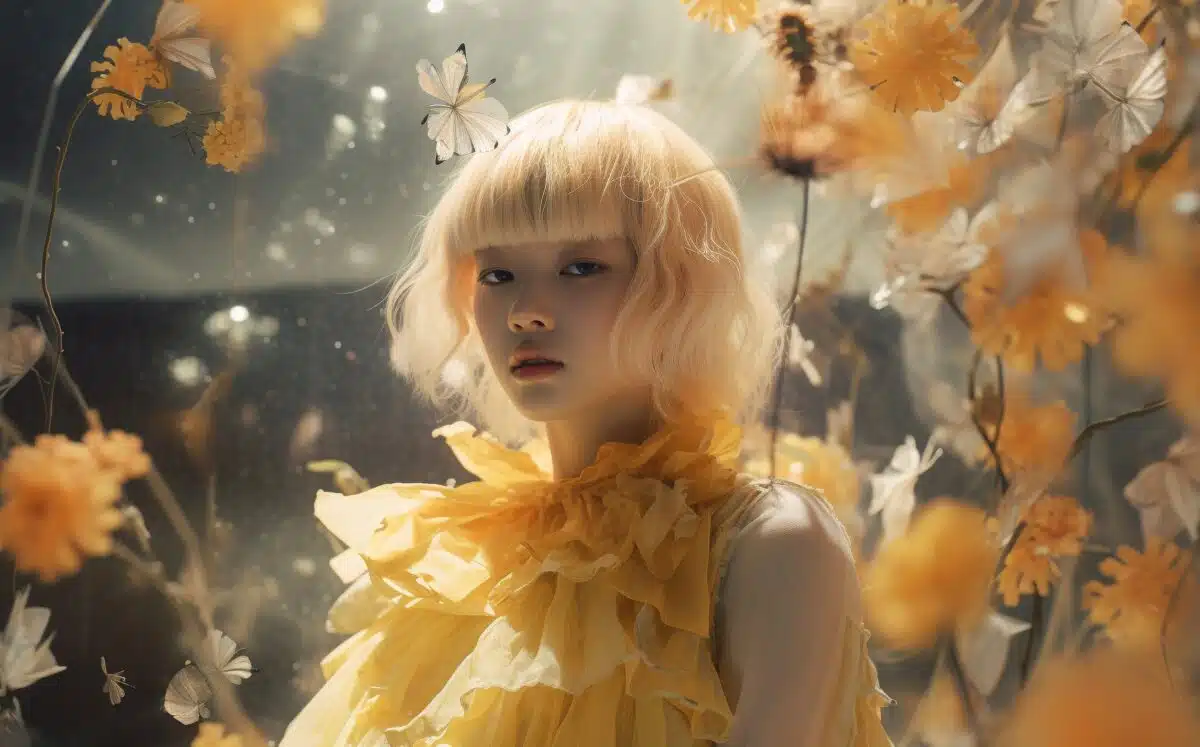
Nature has always been a wellspring of inspiration for poets throughout history, and the nature poems penned by John Keats are no exception.
With his eloquent words and vivid imagery, Keats transports us to enchanting landscapes, where we can immerse ourselves in the beauty and majesty of the natural world.
Let’s go!
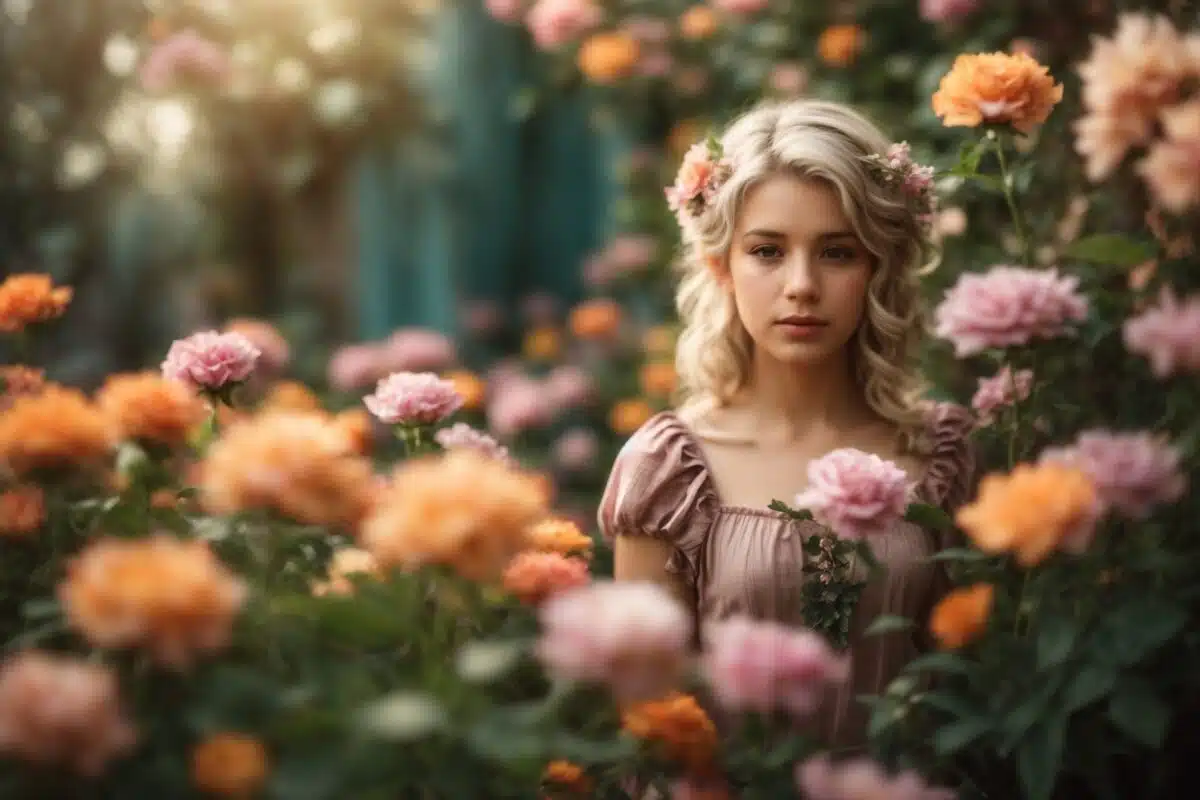
“To A Friend Who Sent Me Some Roses” by John Keats
As late I rambled in the happy fields,
What time the skylark shakes the tremulous dew
From his lush clover covert;-when anew
Adventurous knights take up their dinted shields;
I saw the sweetest flower wild nature yields,
A fresh-blown musk-rose; ’twas the first that threw
Its sweets upon the summer: graceful it grew
As is the wand that queen Titania wields.
And, as I feasted on its fragrancy,
I thought the garden-rose it far excell’d;
But when, O Wells! thy roses came to me,
My sense with their deliciousness was spell’d:
Soft voices had they, that with tender plea
Whisper’d of peace, and truth, and friendliness unquell’d.
“Summer’s Eve” by John Keats
Oh! how I love, on a fair summer’s eve,
When streams of light pour down the golden west,
And on the balmy zephyrs tranquil rest
The silver clouds, far-far away to leave
All meaner thoughts, and take a sweet reprieve
From little cares; to find, with easy quest,
A fragrant wild, with Nature’s beauty drest,
And there into delight my soul deceive,
There warm my breast with patriotic lore,
Musing on Milton’s fate-on Sydney’s bier
Till their stern forms before my mind arise :
Perhaps on wing of Poesy upsoar,
Full often dropping a delicious tear,
When some melodious sorrow spells mine eyes.
“On the Grasshopper and Cricket” by John Keats
The poetry of earth is never dead:
When all the birds are faint with the hot sun,
And hide in cooling trees, a voice will run
From hedge to hedge about the new-mown mead –
That is the Grasshopper’s. He takes the lead
In summer luxury; he has never done
With his delights, for when tired out with fun
He rests at ease beneath some pleasant weed.
The poetry of earth is ceasing never:
On a lone winter evening, when the frost
Has wrought a silence, from the stove there shrills
The Cricket’s song, in warmth increasing ever,
And seems to one in drowsiness half lost,
The Grasshopper’s among some grassy hills.
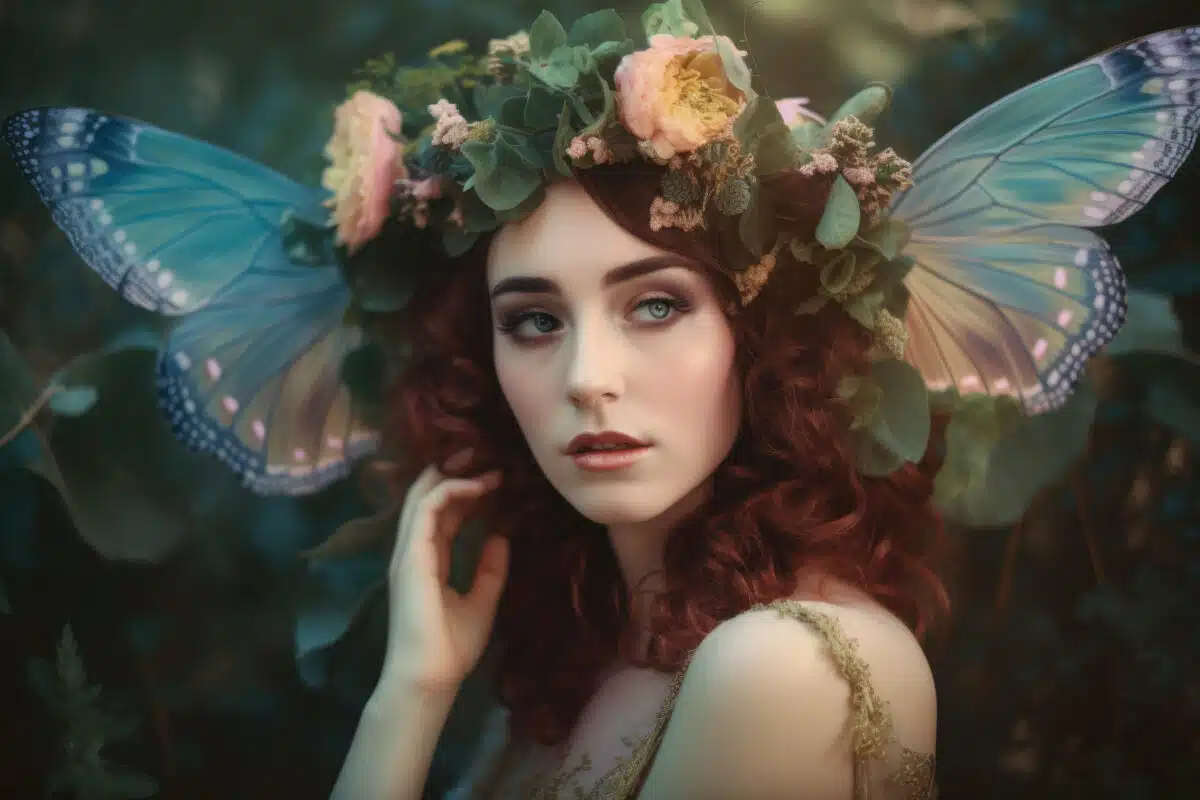
“Faery Songs” by John Keats
I.
Shed no tear! oh, shed no tear!
The flower will bloom another year.
Weep no more! oh, weep no more!
Young buds sleep in the root’s white core.
Dry your eyes! oh, dry your eyes!
For I was taught in Paradise
To ease my breast of melodies,–
Shed no tear.
Overhead! look overhead!
‘Mong the blossoms white and red–
Look up, look up! I flutter now
On this fresh pomegranate bough.
See me! ’tis this silvery bill
Ever cures the good man’s ill.
Shed no tear! oh, shed no tear!
The flower will bloom another year.
Adieu, adieu — I fly — adieu!
I vanish in the heaven’s blue,–
Adieu, adieu!
II.
Ah! woe is me! poor silver-wing!
That I must chant thy lady’s dirge,
And death to this fair haunt of spring,
Of melody, and streams of flowery verge,–
Poor silver-wing! ah! woe is me!
That I must see
These blossoms snow upon thy lady’s pall!
Go, pretty page! and in her ear
Whisper that the hour is near!
Softly tell her not to fear
Such calm favonian burial!
Go, pretty page! and soothly tell,–
The blossoms hang by a melting spell,
And fall they must, ere a star wink thrice
Upon her closed eyes,
That now in vain are weeping their last tears,
At sweet life leaving, and these arbours green,–
Rich dowry from the Spirit of the Spheres,
Alas! poor Queen!
“To The Nile” by John Keats
Son of the old Moon-mountains African!
Stream of the Pyramid and Crocodile!
We call thee fruitful, and that very while
A desert fills our seeing’s inward span:
Nurse of swart nations since the world began,
Art thou so fruitful? or dost thou beguile
Those men to honour thee, who, worn with toil,
Rest them a space ‘twixt Cairo and Decan?
O may dark fancies err! They surely do;
‘Tis ignorance that makes a barren waste
Of all beyond itself. Thou dost bedew
Green rushes like our rivers, and dost taste
The pleasant sun-rise. Green isles hast thou too,
And to the sea as happily dost haste.
“Ben Nevis” by John Keats
Read me a lesson, Muse, and speak it loud
Upon the top of Nevis, blind in mist!
I look into the chasms, and a shroud
Vaporous doth hide them,—just so much I wist
Mankind do know of hell; I look o’erhead,
And there is sullen mist, —even so much
Mankind can tell of heaven ; mist is spread
Before the earth, beneath me, —even such,
Even so vague is man’s sight of himself!
Here are the craggy stones beneath my feet,—
Thus much I know that, a poor witless elf,
I tread on them,—that all my eye doth meet
Is mist and crag, not only on this height,
But in the world of thought and mental might!
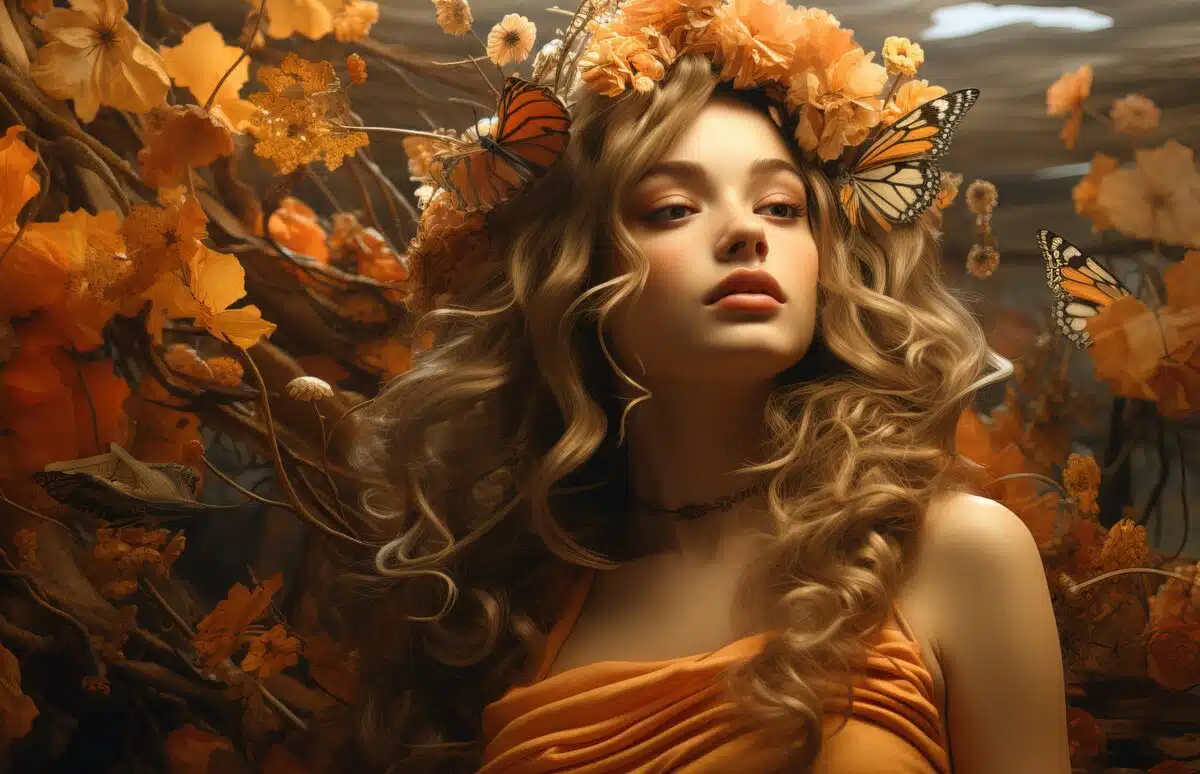
“The Human Seasons” by John Keats
Four Seasons fill the measure of the year;
There are four seasons in the mind of man:
He has his lusty Spring, when fancy clear
Takes in all beauty with an easy span:
He has his Summer, when luxuriously
Spring’s honey’d cud of youthful thought he loves
To ruminate, and by such dreaming high
Is nearest unto Heaven : quiet coves
His soul has in its Autumn, when his wings
He furleth close ; contented so to look
On mists in idleness-to let fair things
Pass by unheeded as a threshold brook.
He has his Winter too of pale misfeature,
Or else he would forego his mortal nature.
“Ode To Autumn” by John Keats
1.
Season of mists and mellow fruitfulness,
Close bosom-friend of the maturing sun;
Conspiring with him how to load and bless
With fruit the vines that round the thatch-eves run;
To bend with apples the moss’d cottage-trees,
And fill all fruit with ripeness to the core;
To swell the gourd, and plump the hazel shells
With a sweet kernel; to set budding more,
And still more, later flowers for the bees,
Until they think warm days will never cease,
For Summer has o’er-brimm’d their clammy cells.
2.
Who hath not seen thee oft amid thy store?
Sometimes whoever seeks abroad may find
Thee sitting careless on a granary floor,
Thy hair soft-lifted by the winnowing wind;
Or on a half-reap’d furrow sound asleep,
Drows’d with the fume of poppies, while thy hook
Spares the next swath and all its twined flowers:
And sometimes like a gleaner thou dost keep
Steady thy laden head across a brook;
Or by a cyder-press, with patient look,
Thou watchest the last oozings hours by hours.
3.
Where are the songs of Spring? Ay, where are they?
Think not of them, thou hast thy music too,—
While barred clouds bloom the soft-dying day,
And touch the stubble-plains with rosy hue;
Then in a wailful choir the small gnats mourn
Among the river sallows, borne aloft
Or sinking as the light wind lives or dies;
And full-grown lambs loud bleat from hilly bourn;
Hedge-crickets sing; and now with treble soft
The red-breast whistles from a garden-croft;
And gathering swallows twitter in the skies.
From “Endymion: Book I” by John Keats
A thing of beauty is a joy for ever:
Its loveliness increases; it will never
Pass into nothingness; but still will keep
A bower quiet for us, and a sleep
Full of sweet dreams, and health, and quiet breathing.
Therefore, on every morrow, are we wreathing
A flowery band to bind us to the earth,
Spite of despondence, of the inhuman dearth
Of noble natures, of the gloomy days,
Of all the unhealthy and o’er-darkened ways
Made for our searching: yes, in spite of all,
Some shape of beauty moves away the pall
From our dark spirits. Such the sun, the moon,
Trees old and young, sprouting a shady boon
For simple sheep; and such are daffodils
With the green world they live in; and clear rills
That for themselves a cooling covert make
‘Gainst the hot season; the mid forest brake,
Rich with a sprinkling of fair musk-rose blooms:
And such too is the grandeur of the dooms
We have imagined for the mighty dead;
All lovely tales that we have heard or read:
An endless fountain of immortal drink,
Pouring unto us from the heaven’s brink.
Nor do we merely feel these essences
For one short hour; no, even as the trees
That whisper round a temple become soon
Dear as the temple’s self, so does the moon,
The passion poesy, glories infinite,
Haunt us till they become a cheering light
Unto our souls, and bound to us so fast,
That, whether there be shine, or gloom o’ercast,
They alway must be with us, or we die.
Therefore, ’tis with full happiness that I
Will trace the story of Endymion.
The very music of the name has gone
Into my being, and each pleasant scene
Is growing fresh before me as the green
Of our own vallies: so I will begin
Now while I cannot hear the city’s din;
Now while the early budders are just new,
And run in mazes of the youngest hue
About old forests; while the willow trails
Its delicate amber; and the dairy pails
Bring home increase of milk. And, as the year
Grows lush in juicy stalks, I’ll smoothly steer
My little boat, for many quiet hours,
With streams that deepen freshly into bowers.
Many and many a verse I hope to write,
Before the daisies, vermeil rimm’d and white,
Hide in deep herbage; and ere yet the bees
Hum about globes of clover and sweet peas,
I must be near the middle of my story.
O may no wintry season, bare and hoary,
See it half finished: but let Autumn bold,
With universal tinge of sober gold,
Be all about me when I make an end.
And now at once, adventuresome, I send
My herald thought into a wilderness:
There let its trumpet blow, and quickly dress
My uncertain path with green, that I may speed
Easily onward, thorough flowers and weed.
Romantic Poems by John Keats
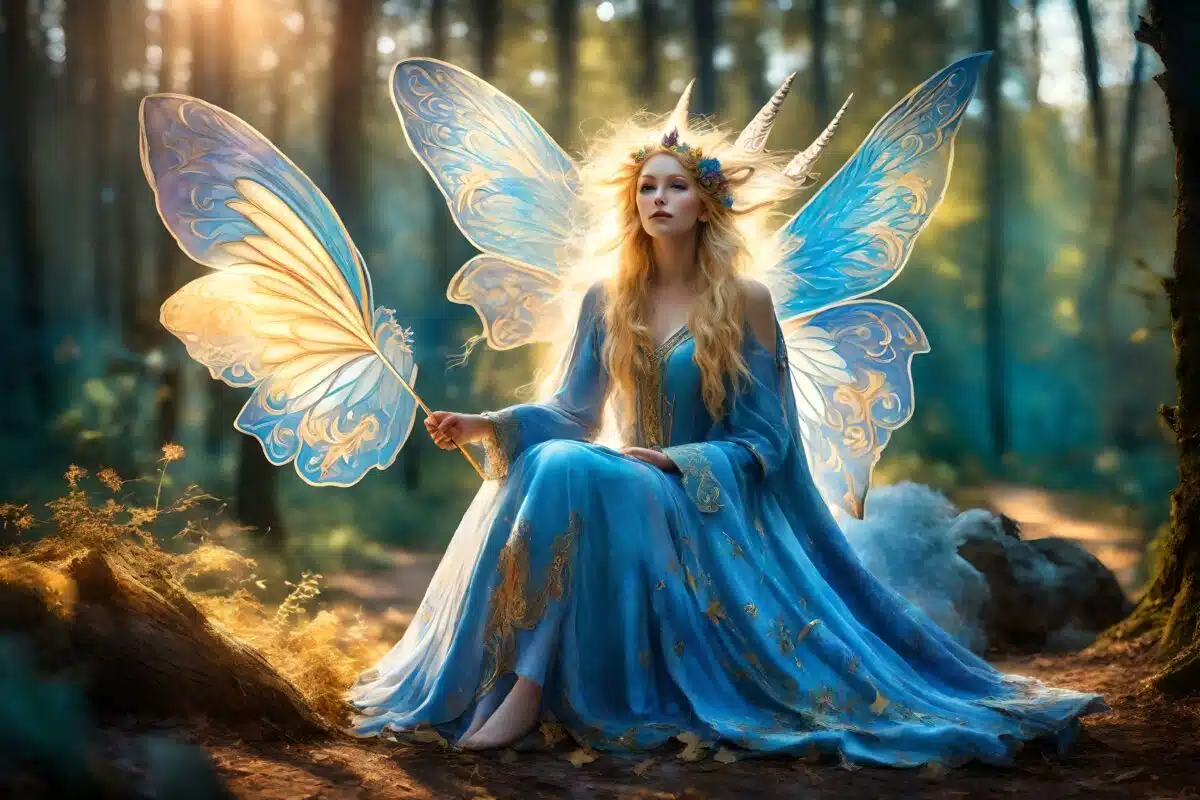
Immerse yourself in the captivating realm of John Keats, where the fusion of love and beauty is beautifully portrayed in his enchanting anthology of romantic poetry.
Through each graceful line, Keats skillfully creates vibrant images and stirs profound feelings, guiding us on a poetic odyssey that surpasses the boundaries of time and encapsulates the very essence of love’s gentle caress.
Let’s get right to it!
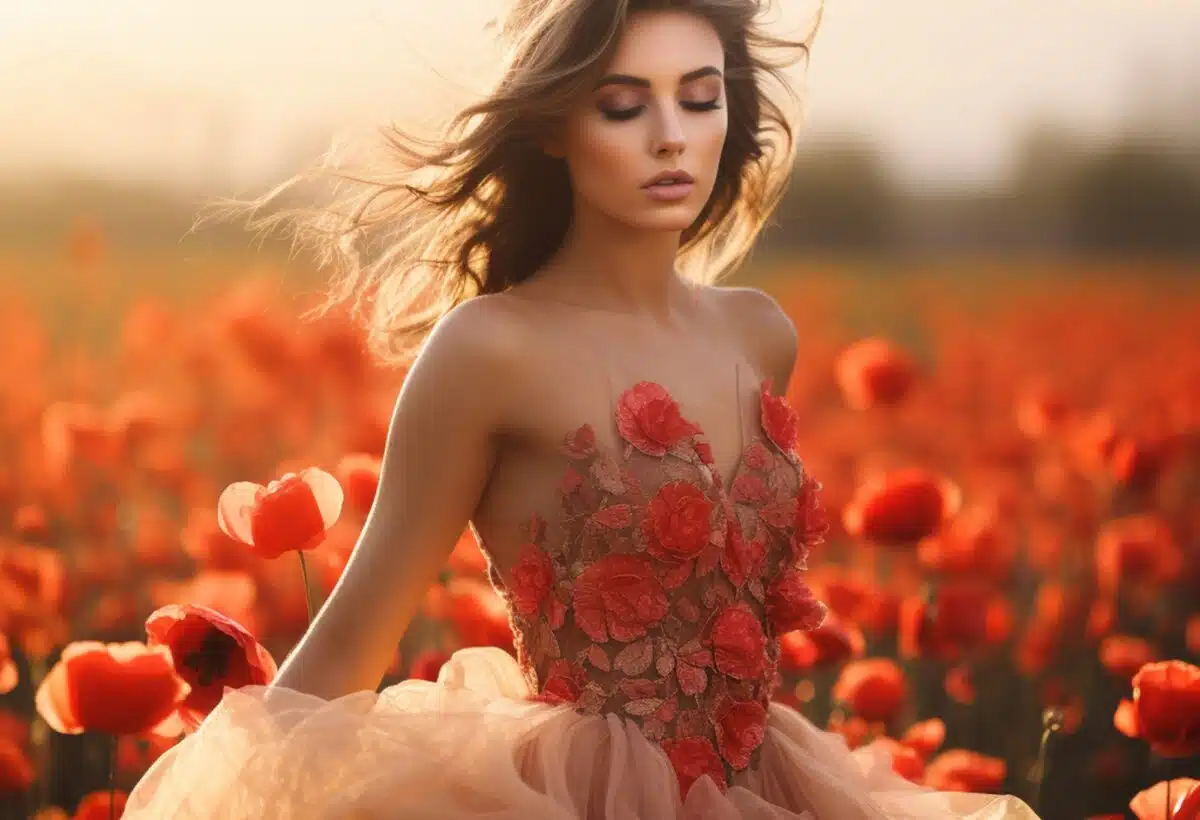
“Written Before Re-Reading ‘King Lear'” by John Keats
O Golden-Tongued Romance with serene lute!
Fair plumed Syren! Queen! if far away!
Leave melodizing on this wintry day,
Shut up thine olden volume, and be mute.
Adieu! for once again the fierce dispute,
Betwixt Hell torment and impassion’d clay
Must I burn through; once more assay
The bitter sweet of this Shakespearian fruit.
Chief Poet! and ye clouds of Albion,
Begetters of our deep eternal theme,
When I am through the old oak forest gone,
Let me not wander in a barren dream,
But when I am consumed with the Fire,
Give me new Phoenix-wings to fly at my desire.
“A Party Of Lovers” by John Keats
Pensive they sit, and roll their languid eyes,
Nibble their toast and cool their tea with sighs;
Or else forget the purpose of the night,
Forget their tea, forget their appetite.
See, with cross’d arms they sit -Ah! happy crew,
The fire is going out and no one rings
For coals, and therefore no coals Betty brings.
A fly is in the milk-pot. Must he die
Circled by a humane society?
No, no; there, Mr Werter takes his spoon,
Inserts it, dips the handle, and lo! soon
The little straggler, sav’d from perils dark,
Across the teaboard draws a long wet mark.
Romeo! Arise, take snuffers by the handle,
There’s a large cauliflower in each candle.
A winding sheet-ah, me! I must away
To No. 7, just beyond the circus gay.
Alas, my friend, your coat sits very well;
Where may your Tailor live? I may not tell.
O pardon me. I’m absent now and then.
Where might my Tailor live? I say again
I cannot tell, let me no more be teazed;
He lives in Wapping, might live where he pleased.
“To G. A. W.” by John Keats
Nymph of the downward smile and sidelong glance!
In what diviner moments of the day
Art thou most lovely? when gone far astray
Into the labyrinths of sweet utterance?
Or when serenely wandering in a trance
Of sober thought? Or when starting away,
With careless robe to meet the morning ray,
Thou sparest the flowers in thy mazy dance?
Haply ‘ tis when thy ruby lips part sweetly,
And so remain, because thou listenest:
But thou to please were nurtured so completely
That I can never tell what mood is best,
I shall as soon pronounce which Grace more neatly
Trips it before Apollo than the rest.
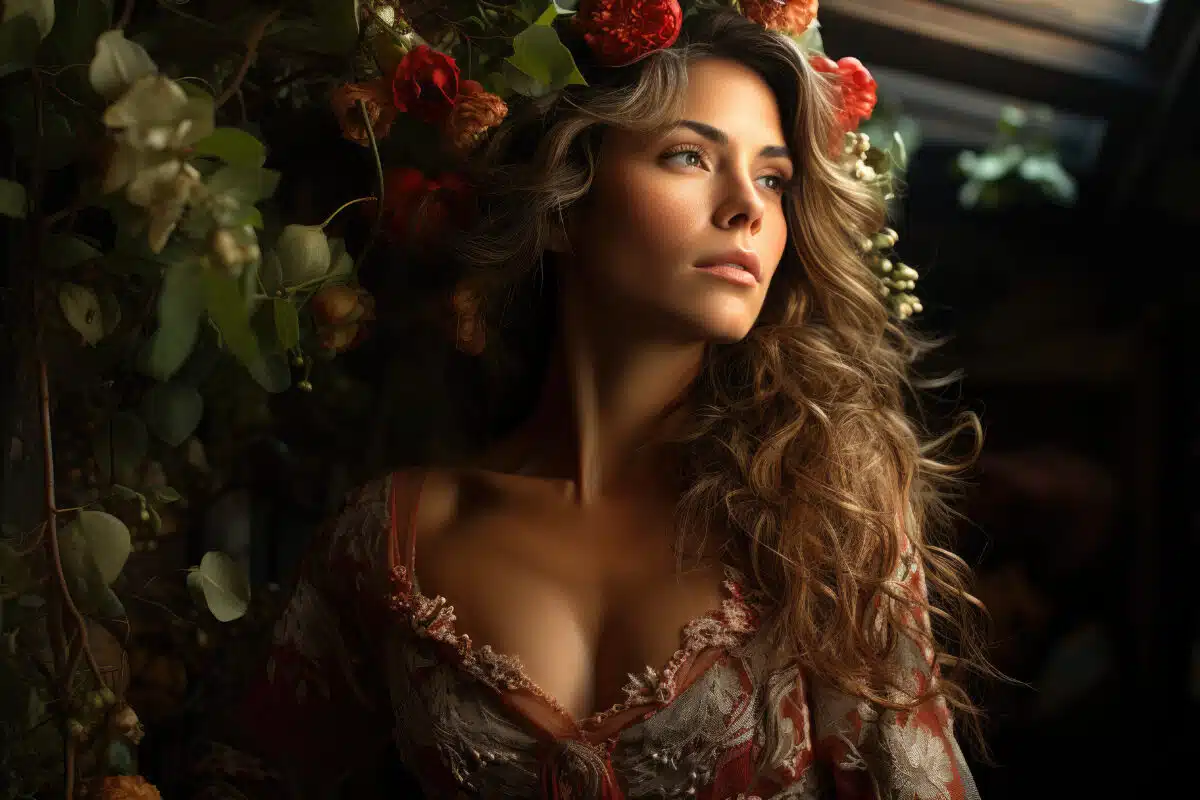
“Stanzas To Miss Wylie” by John Keats
O come Georgiana! the rose is full blown,
The riches of Flora are lavishly strown,
The air is all softness, and crystal the streams,
The West is resplendently clothed in beams.
O come! let us haste to the freshening shades,
The quaintly carv’d seats, and the opening glades;
Where the faeries are chanting their evening hymns,
And in the last sun-beam the sylph lightly swims.
And when thou art weary I’ll find thee a bed,
Of mosses and flowers to pillow thy head:
And there Georgiana I’ll sit at thy feet,
While my story of love I enraptur’d repeat.
So fondly I’ll breathe, and so softly I’ll sigh,
Thou wilt think that some amorous Zephyr is nigh:
Yet no, as I breathe I will press thy fair knee,
And then thou wilt know that the sigh comes from me.
Ah! why dearest girl should we lose all these blisses?
That mortal’s a fool who such happiness misses:
So smile acquiescence, and give me thy hand,
With love-looking eyes, and with voice sweetly bland.
“Lines To—” by John Keats
Think not of it, sweet one, so;—
Give it not a tear;
Sigh thou mayst, and bid it go
Any—anywhere.
Do not look so sad, sweet one, —
Sad and fadingly;
Shed one drop then—it is gone—
Oh! ’twas born to die!
Still so pale? then, dearest, weep;
Weep, I’ll count the tears,
And each one shall be a bliss
For thee in after years.
Brighter has it left thine eyes
Than a sunny rill;
And thy whispering melodies
Are tenderer still.
Yet—as all things mourn a while –
At fleeting blisses;
Let us too; but be our dirge
A dirge of kisses.
“Lines” by John Keats
Unfelt, unheard, unseen,
I’ve left my little queen,
Her languid arms in silver slumber lying:
Ah! through their nestling touch,
Who—who could tell how much
There is for madness-cruel, or complying?
Those faery lids how sleek!
Those lips how moist!-they speak,
In ripest quiet, shadows of sweet sounds:
Into my fancy’s ear
Melting a burden dear,
How “Love doth know no fulness, nor no bounds.”
True!—tender monitors!
I bend unto your laws:
This sweetest day for dalliance was born!
So, without more ado,
I’ll feel my heaven anew,
For all the blushing of the hasty morn.

“Hither, Hither, Love” by John Keats
Hither hither, love
‘Tis a shady mead
Hither, hither, love!
Let us feed and feed!
Hither, hither, sweet
‘Tis a cowslip bed
Hither, hither, sweet!
‘Tis with dew bespread!
Hither, hither, dear
By the breath of life,
Hither, hither, dear!
Be the summer’s wife!
Though one moment’s pleasure
In one moment flies
Though the passion’s treasure
In one moment dies;
Yet it has not passed,
Think how near, how near!
And while it doth last,
Think how dear, how dear!
Hither, hither, hither
Love its boon has sent
If I die and wither
I shall die content!
“Ode On Melancholy” by John Keats
No, no, go not to Lethe, neither twist
Wolf’s-bane, tight-rooted, for its poisonous wine;
Nor suffer thy pale forehead to be kiss’d
By nightshade, ruby grape of Proserpine;
Make not your rosary of yew-berries,
Nor let the beetle, nor the death-moth be
Your mournful Psyche, nor the downy owl
A partner in your sorrow’s mysteries;
For shade to shade will come too drowsily,
And drown the wakeful anguish of the soul.
But when the melancholy fit shall fall
Sudden from heaven like a weeping cloud,
That fosters the droop-headed flowers all,
And hides the green hill in an April shroud;
Then glut thy sorrow on a morning rose,
Or on the rainbow of the salt sand-wave,
Or on the wealth of globed peonies;
Or if thy mistress some rich anger shows,
Emprison her soft hand, and let her rave,
And feed deep, deep upon her peerless eyes.
She dwells with Beauty—Beauty that must die;
And Joy, whose hand is ever at his lips
Bidding adieu; and aching Pleasure nigh,
Turning to poison while the bee-mouth sips:
Ay, in the very temple of Delight
Veil’d Melancholy has her sovran shrine,
Though seen of none save him whose strenuous tongue
Can burst Joy’s grape against his palate fine;
His soul shalt taste the sadness of her might,
And be among her cloudy trophies hung.
“La Belle Dame Sans Merci” by John Keats
Ah, what can ail thee, wretched wight,
Alone and palely loitering;
The sedge is withered from the lake,
And no birds sing.
Ah, what can ail thee, wretched wight,
So haggard and so woe-begone?
The squirrel’s granary is full,
And the harvest’s done.
I see a lilly on thy brow,
With anguish moist and fever dew;
And on thy cheek a fading rose
Fast withereth too.
I met a lady in the meads
Full beautiful, a faery’s child;
Her hair was long, her foot was light,
And her eyes were wild.
I set her on my pacing steed,
And nothing else saw all day long;
For sideways would she lean, and sing
A faery’s song.
I made a garland for her head,
And bracelets too, and fragrant zone;
She looked at me as she did love,
And made sweet moan.
She found me roots of relish sweet,
And honey wild, and manna dew;
And sure in language strange she said,
I love thee true.
She took me to her elfin grot,
And there she gazed and sighed deep,
And there I shut her wild sad eyes—
So kissed to sleep.
And there we slumbered on the moss,
And there I dreamed, ah woe betide,
The latest dream I ever dreamed
On the cold hill side.
I saw pale kings, and princes too,
Pale warriors, death-pale were they all;
Who cried—”La belle Dame sans merci
Hath thee in thrall!”
I saw their starved lips in the gloam
With horrid warning gaped wide,
And I awoke, and found me here
On the cold hill side.
And this is why I sojourn here
Alone and palely loitering,
Though the sedge is withered from the lake,
And no birds sing.

“To—” by John Keats
Had I a man’s fair form, then might my sighs
Be echoed swiftly through that ivory shell
Thine ear, and find thy gentle heart; so well
Would passion arm me for the enterprize:
But ah! I am no knight whose foeman dies;
No cuirass glistens on my bosom’s swell;
I am no happy shepherd of the dell
Whose lips have trembled with a maiden’s eyes.
Yet must I doat upon thee, call thee sweet,
Sweeter by far than Hybla’s honied roses
When steep’d in dew rich to intoxication.
Ah! I will taste that dew, for me ’tis meet,
And when the moon her pallid face discloses,
I’ll gather some by spells, and incantation.
“Woman! When I Behold Thee Flippant, Vain” by John Keats
Woman! when I behold thee flippant, vain,
Inconstant, childish, proud, and full of fancies;
Without that modest softening that enhances
The downcast eye, repentant of the pain
That its mild light creates to heal again:
E’en then, elate, my spirit leaps, and prances,
E’en then my soul with exultation dances
For that to love, so long, I’ve dormant lain:
But when I see thee meek, and kind, and tender,
Heavens! how desperately do I adore
Thy winning graces;—to be thy defender
I hotly burn—to be a Calidore—
A very Red Cross Knight—a stout Leander—
Might I be loved by thee like these of yore.
Light feet, dark violet eyes, and parted hair;
Soft dimpled hands, white neck, and creamy breast,
Are things on which the dazzled senses rest
Till the fond, fixed eyes forget they stare.
From such fine pictures, heavens! I cannot dare
To turn my admiration, though unpossess’d
They be of what is worthy,—though not drest
In lovely modesty, and virtues rare.
Yet these I leave as thoughtless as a lark;
These lures I straight forget,—e’en ere I dine,
Or thrice my palate moisten: but when I mark
Such charms with mild intelligences shine,
My ear is open like a greedy shark,
To catch the tunings of a voice divine.
Ah! who can e’er forget so fair a being?
Who can forget her half retiring sweets?
God! she is like a milk-white lamb that bleats
For man’s protection. Surely the All-seeing,
Who joys to see us with his gifts agreeing,
Will never give him pinions, who intreats
Such innocence to ruin,—who vilely cheats
A dove-like bosom. In truth there is no freeing
One’s thoughts from such a beauty; when I hear
A lay that once I saw her hand awake,
Her form seems floating palpable, and near;
Had I e’er seen her from an arbour take
A dewy flower, oft would that hand appear,
And o’er my eyes the trembling moisture shake.
“Hymn To Apollo” by John Keats
1.
God of the golden bow,
And of the golden lyre,
And of the golden hair,
And of the golden fire,
Charioteer
Of the patient year,
Where where slept thine ire,
When like a blank idiot I put on thy wreath,
Thy laurel, thy glory,
The light of thy story,
Or was I a worm too low crawling for death?
O Delphic Apollo!
2.
The Thunderer grasp’d and grasp’d,
The Thunderer frown’d and frown’d;
The eagle’s feathery mane
For wrath became stiffen’d the sound
Of breeding thunder
Went drowsily under,
Muttering to be unbound.
O why didst thou pity, and beg for a worm?
Why touch thy soft lute
Till the thunder was mute,
Why was I not crush’d such a pitiful germ?
O Delphic Apollo!
3.
The Pleiades were up,
Watching the silent air;
The seeds and roots in Earth
Were swelling for summer fare;
The Ocean, its neighbour,
Was at his old labour,
When, who who did dare
To tie for a moment, thy plant round his brow,
And grin and look proudly,
And blaspheme so loudly,
And live for that honour, to stoop to thee now?
O Delphic Apollo!
- 55 Best Poems by William Shakespeare
- 27 Best Poems by Arthur Rimbaud
- 47 Best Poems by Edgar Allan Poe
- 43 Best Poems by Rumi
- 35 Bewitching Love Poems by Rumi
- 47 Admirable Love Poems by William Butler Yeats
- 21 Sensuous Love Poems by John Keats
- 21 Absorbing Love Poems by Pablo Neruda
- 49 Consuming Love Poems by Shakespeare
